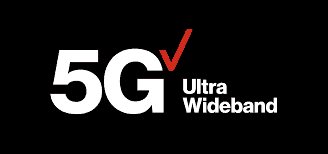
Dunne
Verizon will hold off on expanding its millimeter wave 5G wireless home broadband service until at least the second half of 2020, citing equipment availability issues.
Ronan Dunne, executive vice president and group CEO of Verizon’s Consumer Division, told attendees at a Citi investor’s conference that Verizon’s initial introduction of Home 5G was just a market test, and until newer high-powered wireless routers arrive that will be capable of more robust reception of the very high frequencies the service works on, Verizon will not expand the service further.
Dunne called the next generation of 5G home receivers “key” to Verizon’s wireless home broadband strategy. Dunne said the new equipment will let consumers receive more distant and weaker 5G wireless signals, allowing Verizon to expand coverage of the service to more households. The current generation of 5G receivers were designed for use in smartphones, which hampers in-home reception quality.
Verizon initially promised to serve about one-quarter of the United States with its wireless home broadband service, eventually capable of supplying 500/200 Mbps and more to subscribers. But Verizon’s goal to reach over 30 million households will take the company as long as seven years to reach.
Dunne also warned Verizon is prioritizing 5G coverage in urban commercial areas instead of suburban, rural, and residential neighborhoods. Verizon’s core 5G network will target dense urban areas, including commercial shopping, business, and entertainment venues like concert halls and sports stadiums where the company measures the highest traffic demand it hopes to satisfy with 5G. Verizon’s home 5G broadband service piggybacks on Verizon’s 5G mobile network, which means it will only be available in neighborhoods where Verizon has deployed its network of small cells.
 “It’s very much a mobility strategy, with a secondary product of Home [5G], rather than us changing our overarching mobility deployment to try to accelerate Home at the expense of the overall 130 million customer base,” Dunne explained.
“It’s very much a mobility strategy, with a secondary product of Home [5G], rather than us changing our overarching mobility deployment to try to accelerate Home at the expense of the overall 130 million customer base,” Dunne explained.
Verizon hopes to offer customers 5G-capable mobile phones for as little as $600 in the coming year and getting widespread adoption of 5G by Verizon customers is a long-term goal for Dunne. He added that once 5G becomes more widely available, Verizon and other wireless companies will consider shutting down Wi-Fi hotspots in favor of 5G.
“In a world of 5G millimeter wave deployments, we don’t see the need for Wi-Fi in the future, because we have a more secure network environment,” Dunne said. “Our view is that when fully deployed there are substantial environments where public Wi-Fi will be eliminated in favor of millimeter wave.”


 Subscribe
Subscribe
Not like VZW has a ton of hotspots of its own anyway. It’s Spectrum, Altice/Optimum, and to some extent Comcast with large commercial-grade networks. Yes, even a decent LTE signal is faster than those networks, but my bet is that the WiFi tech is cheaper to deploy at the moment. And with the cablecos’ investment in those networks as a competitive advantage (on top of the speed advantage vs. DSL), I sincerely doubt that they’ll drop the networks quickly, as you don’t need a special device to use them…while a number of 5G phones don’t even have mmWave. On the… Read more »